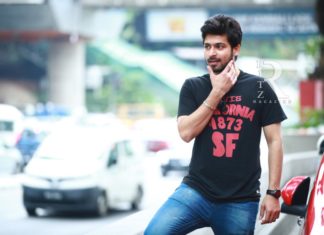I have always been perplexed with this question as to why negative thoughts are more easier to entertain than positive ones ? why bad habits easily takes over us and we struggle to cultivate good habits? Is it a choice of nature to have wired us that way when we enter this world? This struggle is a profound aspect of human behavior, deeply rooted in our biology, psychology, and environment. Neuroscience offers valuable insights into why we often gravitate toward negative patterns while finding it challenging to cultivate positive ones. This article explores the intricate relationship between our brains and thoughts and habits, drawing on scientific perspectives and philosophical reflections.
At the heart of habit formation lies a complex interplay between various brain regions. The prefrontal cortex, responsible for decision-making and self-control, initially guides our conscious choices. However, as a behavior is repeated, control shifts to the basal ganglia, which automates the action, making it less reliant on conscious thought. This transition is crucial; once a habit is ingrained, it becomes automatic, freeing up mental resources for other tasks.
James Clear, in his book Atomic Habits, ilustrates this process through the “habit loop,” which consists of four stages: cue, craving, response, and reward. Each time we engage in a behavior that leads to a reward—such as eating comfort food or scrolling through social media—our brain releases dopamine, reinforcing the neural pathways associated with that action. As Clear states, “You become what you repeat.” This highlights the ease with which bad habits can form: they often provide immediate gratification, while good habits require sustained effort and delayed rewards.
Neuroplasticity refers to the brain’s ability to reorganize itself by forming new neural connections throughout life. This adaptability is pivotal in habit formation and change. Self-directed neuroplasticity, a concept popularized by Dr. Rick Hanson, emphasizes that we can actively rewire our brains to foster positive habits. By consciously reflecting on our behaviors and their outcomes, we can create new pathways that support healthier choices.
Dr. Sanam Hafeez notes that “any habit we develop is because our brain is designed to pick up on things that reward us and punish us.” This mechanism explains why negative habits can be so compelling; they often arise from immediate rewards that overshadow long-term benefits of positive behaviors. Despite understanding the neuroscience behind habits, we struggle to break free from negative patterns. A study highlighted that nearly half of our daily actions are habitual and occur almost automatically. This automaticity can be beneficial for efficiency but detrimental when it leads to unhealthy behaviors like smoking or overeating. The challenge lies in balancing habitual responses with goal-directed actions. When stressed or overwhelmed, individuals may revert to habitual behaviors rather than consciously choosing healthier options. Stress can amplify reliance on these ingrained habits, making it even harder to enact change.
Philosophers throughout history have pondered the nature of habit and its impact on human behavior. Aristotle famously stated, “We are what we repeatedly do.” This assertion underscores the importance of intentionality in shaping our identities through our choices and actions. While bad habits may feel easier to adopt due to their immediate rewards, cultivating good habits requires mindfulness and persistence. The journey towards positive change often involves discomfort and struggle. As noted by William James, “The greatest weapon against stress is our ability to choose one thought over another.” This choice reflects our capacity for self-awareness and intentional action—key components in breaking free from negative cycles.
As we explore the interplay between neuroscience and habit formation, a compelling question arises: Is it possible to be born positive and naturally bestowed with good habits and thoughts? While genetics play a role in temperament and predisposition toward certain behaviors, environmental factors significantly shape our habits over time. Research indicates that individuals can develop resilience and positivity through supportive environments and positive reinforcement. I have always believed that Perseverance in pursuing goals can be cultivated regardless of innate tendencies.
Extensive studies and research has now proven that practices such as mindfulness meditation enhance self-regulation and promote positive thinking patterns. These practices engage the prefrontal cortex, fostering greater awareness of one’s thoughts and actions—essentially rewiring the brain for positivity.
The neuroscience of habits reveals a complex tapestry woven from biology, psychology, and personal experience. While our brains are wired to seek immediate rewards—often leading us toward negative behaviors—the potential for change exists within each individual through self-directed neuroplasticity. As we reflect on whether positivity can be innate or cultivated, it becomes clear that while some may have a predisposition toward optimism or resilience, everyone has the capacity for growth and transformation. In this journey of self-discovery and habit formation, we must ask ourselves: Can we consciously choose to cultivate positivity in our lives despite our biological inclinations?
In the quiet corners of the mind,
A battle rages, fierce yet kind.
Temptation sings its siren song,
While good habits wait, patient and strong.
The lure of pleasure, a fleeting delight,
Can lead us astray from the path of light.
So here’s to the journey, both winding and wide,
To the strength we find when we turn from the tide.
For though bad habits whisper with tempting allure,
The beauty of goodness is steadfast and pure.
Let’s paint our lives with purpose and grace,
Embracing the light in each heart and each space.
Justice N.Anand Venkatesh is a Judge at the Madras High Court






 Raashii Khanna
Raashii Khanna










